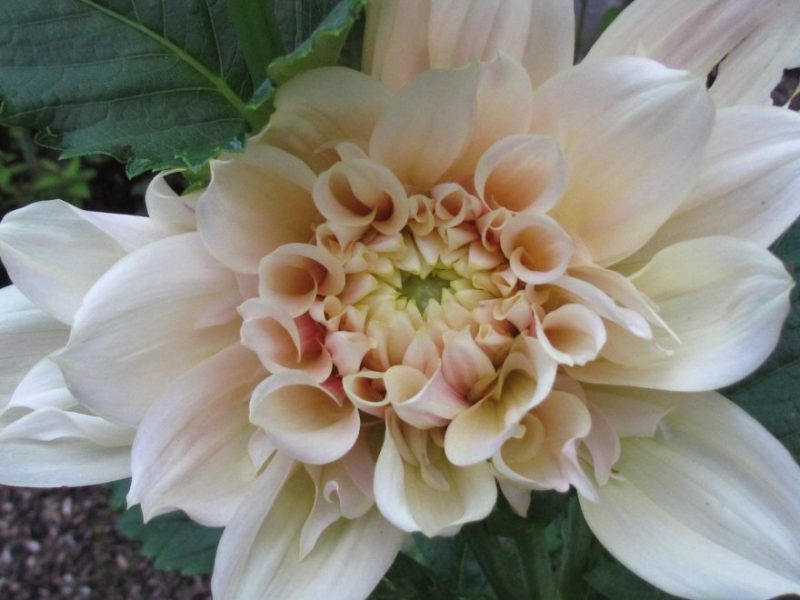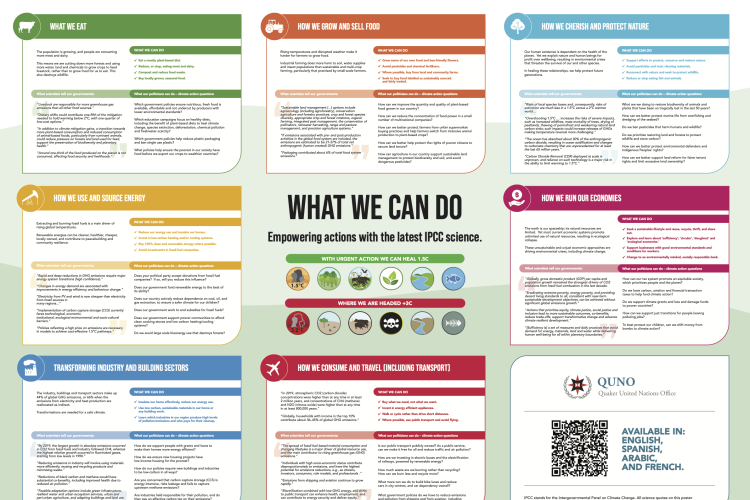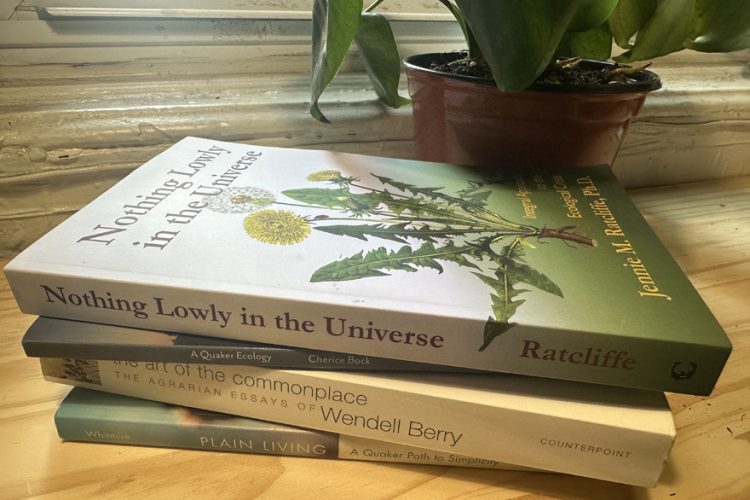What’s Emerging?

By Sara Wolcott.
What is it that Quakerism contributes to my ecological journey?
I am vexed by this question. Five years ago, when my primary sense of religious belonging was nestled deep within the Religious Society of Friends, it would have been easy for me to answer. My confidence that God calls me to live in right relationship with all beings does not tell me what it is about my Quaker lens that supports my faithfulness.
These days, my life and work is highly interdenominational and interfaith. I’ve worked, prayed, and created ecologically centered worship and actions with Buddhists, Hindus, Jesuits, Franciscans, Methodists, Episcopalians, Unitarians, Baptists, Jews, indigenous peoples, and other faith groups at local, national, and international gatherings. I can no longer say that Quakers have a strong hold on the value of silence or the importance of listening to all other beings, or that Quakers are significantly more ecologically minded than other faith communities. Indeed, many other faith communities have taken as much if not more leadership than Quakers in greening their congregations, pushing for better national legislation, reinterpreting scriptures for the “green” dimensions, or envisioning alternatives to growth.
Is there any way in which my Quakerism informs my eco-engagements, besides being the faith I know the best? Two aspects arise in response to that question.
First, Quakerism provides me a rich collection of people who are models, mentors, and (F)riends along the journey who “get it.” As a collectivity, I am not sure whether Quakers are “better” than others, but I know (and continue to meet) a wonderful network of Friends who can offer various forms of guidance and support. Thus, when I chose to take public transportation instead of flying for most of my travels in eco-spirituality this summer, I knew of several Quakers I could call for advice, and no one thought I was strange for prioritizing non-plane travel. I suspect that if I was, for example, UCC, I might find a similar collection of people. But I am not UCC, and I am grateful to find such support for those counter-cultural activities that I do not find easy to do.
Second, one of the most important dynamics of Quakerism is the notion of continual revelation. God continually outpours Herself into our daily lives, offering opportunities, insights, solutions, food, water, and healing. While the notion of “continual revelation” is hardly unique to Quakerism, we have found a way of listening to that Spirit both internally and externally. In unprogrammed Meeting for Worship, including Business Meeting, we listen to the whole and we listen to ourselves and we listen to ourselves in the whole.
That basic practice informs all of my work, including creating new rituals for Christians around water, energy, food, and faithfulness; designing workshops and programming for Catholics in New Mexico around Laudato Si; interfaith eco-spirituality workshops around despair and solace; and supporting alternative livelihoods for coal miners in Tennessee.
I keep asking, What’s emerging? What is the “sense” of this moment, informed, as best we can, by all beings?
To ask that question again and again, always fresh, always curious, is for me at the heart of Quakerism.


